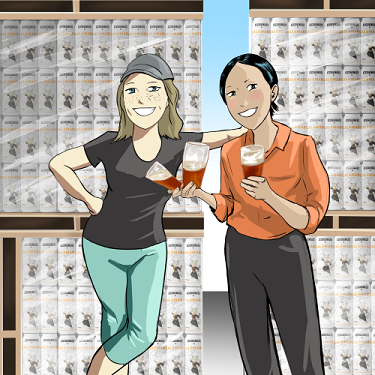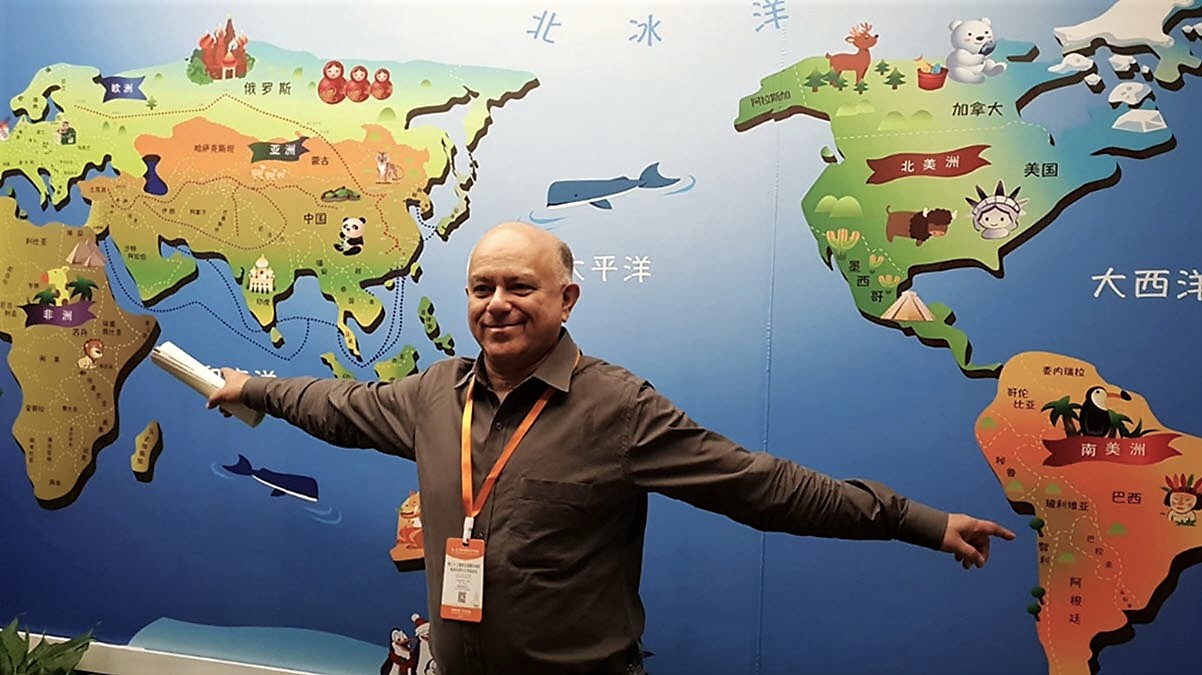Tea innovations date to antiquity. The beverage is constantly re-invented; in this instance, as a CO2-enhanced, nitro-infused, cold-brewed iced tea conveniently available in cans that pour a craft brew head of foam. The ancients might not fully comprehend pop-top cans but would instantly recognize the taste. East Forged tea co-founder Kym Cooper reminds us that tea’s simple, unadulterated taste is timeless.
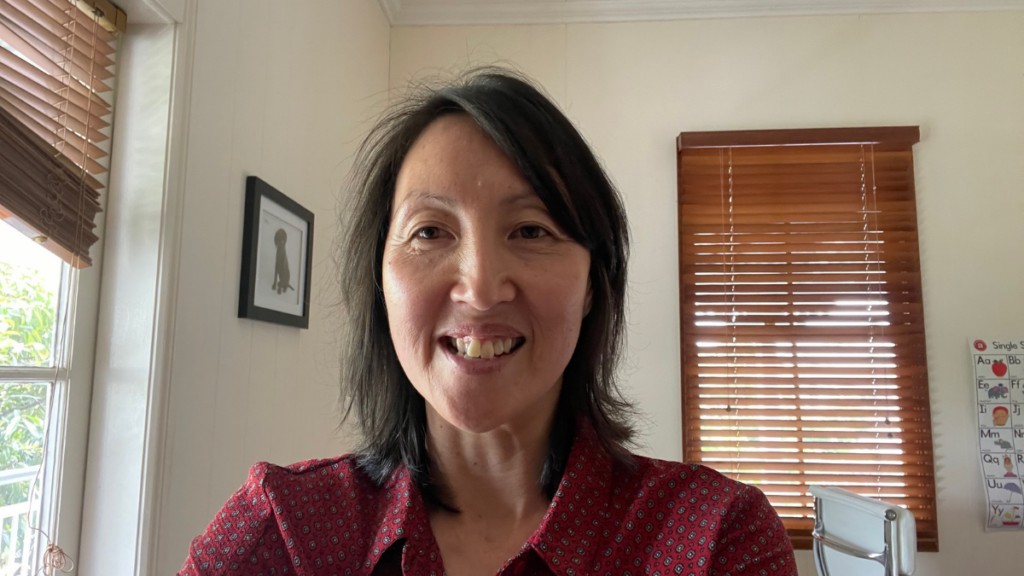
A Fizzy, Foamy Innovation in Tea
By Dan Bolton
East Forged teas, launched in Australia in 2020, are nonalcoholic sparkling adult beverages cold-brewed for 12 hours from organic whole-leaf green, black, and white teas and blended with low-sugar Calamansi, Pitaya, or Yuzu juice. Manufactured in a brewery and then canned, the teas get a burst of CO2 for fizz and nitrogen to add texture and a creamy head. The black tea tastes of citrus and is dry, not sweet. The Fujian-grown white tea is flavored with calamansi, a mild, wild citrus hybrid from the Philippines, ideal for social occasions.
Dan: Kym, let’s talk today about innovation and the timeless essence of tea. What do you like most about tea?
Kym Cooper: I love the taste of tea. The taste is clean and pure, described frequently by tea drinkers as delicate and light. I think we can agree that this is the natural baseline of tea.
You can then find real enjoyment in learning more about the plant, its nuanced complexity, mouthfeel, and the process by which it has been created. These are all qualities that make other agricultural products and ingredients appealing, but somehow it’s just not bridged across to tea.
I think our perception has been largely shaped over the years by what we can access conveniently in supermarkets, where food and drinks become dominated by enhancers to achieve commercial realities such as maximum shelf life. Becoming accustomed to synthesized tastes developed in flavor houses and then enhanced by sugars and sweeteners that still go under the guise of being natural, these products don’t reflect tea’s clean and untainted taste.
It’s quite a real challenge to find tea beverages in the hot and iced tea aisles that represent unadulterated tea.
Dan: How do you interest consumers in tasting better tea? You mentioned that you encourage a broad tea-tasting experience. Let’s start with that.
Kym: I think the best way is to make it approachable and accessible, in my view. When getting people interested in tea, suggesting their tastes need refinement is unnecessary. It’s about encouraging people to try something new and have a wider tasting experience.
We interest people by drawing on some of the simple and natural benefits of tea and allowing them to enjoy it.
“These teas are inclusive and social, suited to adult tastes, a tea for Sober Curious and the mindful drinking community.”
East Forged Website
When I teach people about tea, I encourage them just to take that first step, pick up the cup, taste it, and not have any predefined thoughts about what that tea should be. Then you can move on and decide what you enjoy.
Cold tea drinks with added sugar and flavoring stray a long way from representing that natural taste. To introduce new consumers to the real taste of tea, we use quality leaf tea canned to meet production standards while still retaining the natural taste of the leaf.
I would love to think consumers will eventually reach a point where they can compare and purchase a Japanese-grown Yabukita over an Australian-grown Yabukita, just as we might reach for something like a Granny Smith green apple here in Australia to create a baked apple tart over a red delicious apple as an example.
Understanding the effect of seasons and harvests that we see across all agricultural products can help us be drawn into the world of tea.
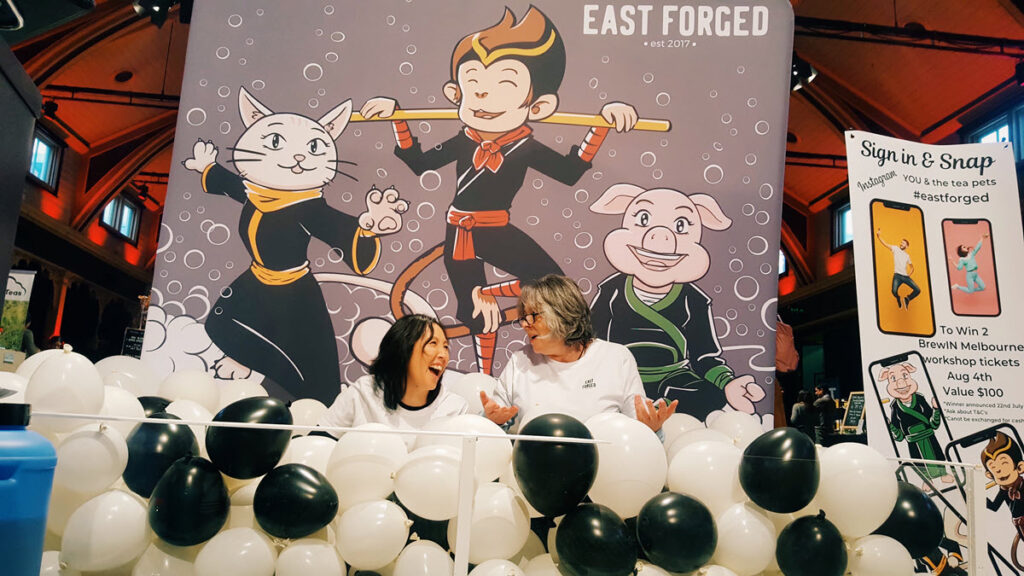
Dan: What is the best way to preserve the natural goodness of tea?
Kym: Tania Stacey, who co-founded East Forged, and I hold a strong belief as tea specialists that we’re uniquely positioned to solve the problem of underrepresented natural-tasting iced tea.
We use simple and natural ingredients; we source directly from a wide network of tea growers and farmers we’ve worked with over the years. We minimally brew and preserve the tea plant and its most delicate properties so that we are able to deliver that authentic tea taste.
The tea is manufactured in a brewery. It’s a mix of tea knowledge and craft techniques. In the Australian market, craft beer is huge, and we love looking at the techniques they use to highlight natural ingredients.
We’ve taken the simple and natural ingredient, with just a small amount of fruit juice, to elevate the flavor profile. We’ve also played around with the gases within our drinks. So, there’s a small amount of CO2, and we use nitrogen in our beverages to retain the best flavors of tea. Each gas works slightly differently in the flavor profile. At the end of the day, it’s still undeniably that taste of tea with really short ingredient list that highlights our East Forged difference.
The brilliance in this short ingredient list is that it actually punches above its weight in terms of the taste, delivering a refreshingly new style of craft iced tea refreshment that looks deceptively like a beer and is completely nonalcoholic with natural and health benefits that come with tea.
Product Specifications
250ml cans
0.3g Sugar
1.8 Cal per can (Black Tea & Yuzu)
3.1 Cal per can (White Tea & Calamansi)
$29 Six pack
Alcohol free
VeganThese teas encourage people to add other inclusive drinking opportunities.
East Forged
There are strong tailwinds in the low-and-no alcohol category. In Australia, we see a trend towards alcohol abstinence (approx. 20%1), and at least half of our drinkers actively moderate their alcohol consumption, with 40%2 of those moderating specifically looking for low-sugar drinks that are both convenient and meet the occasion. Many brands enter this category with like-for-like alcoholic beverages (e.g., NA beers). But tea has a great opportunity to develop this category with a truly inclusive adult-tasting drinking option!
At East Forged, we’re about creating this new wave of ready-to-drink craft iced tea for tea drinkers expecting that provenance of tea in every drop they drink. It’s a cold brew that I think any Sober Curious person will be surprised to find a bit cheeky.
- 1 2019 AIWH National Drug Strategy Household Survey
- 2 2020 Mintel Global Food & Drinks trends
Prizes & Medals
- 2021 World Tea Expo Innovation Finalists
- 2021 Tasmanian Fine Food Awards
- 2021 UK Spirits & Drinks Business (Low/No Masters-aperitif)
- 2020 UK Spirits & Drinks Business (Autumn blind tasting)

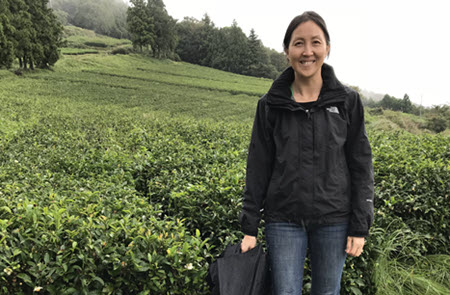
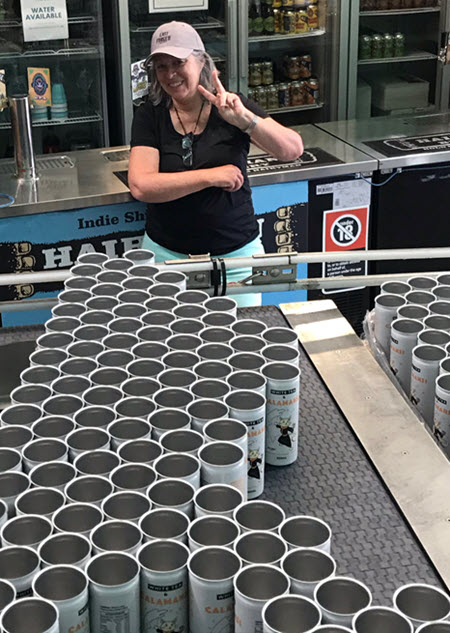
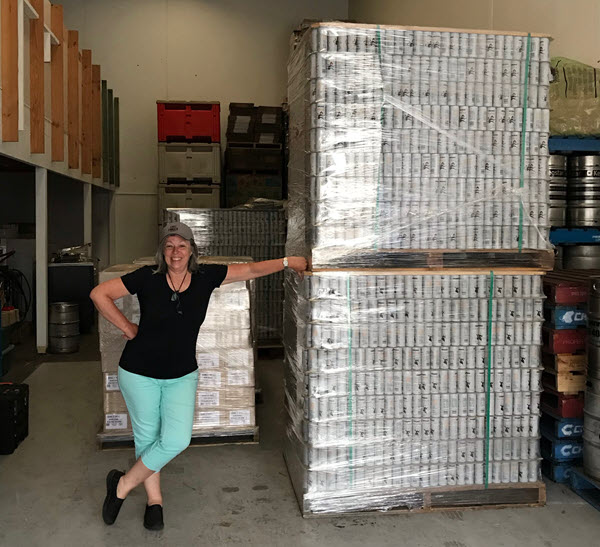
Link to share this post with your colleagues
Signup and receive Tea Biz weekly in your inbox.
Never miss an episode
Subscribe wherever you enjoy podcasts:

